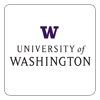Computing has become an integral part of the practice of modern science, math, and engineering. In addition, contemporary STEM careers and research show increased emphasis in the workforce on the need to understand, and to be able to use computing and have computational thinking skills. Moreover, the National Research Council Framework for K-12 Science Education (NRC, 2012) outlined important epistemic practices of science regarding computing that was intended to guide STEM instruction. However, for a myriad of reasons, institutions like K-12 education have not kept up-to-date with integrating the necessary skills development needed for STEM careers. Further, K-12 teachers need assistance in developing and using effective, evidence-based practices for integrating computing and/or computer science into their STEM practice, such as modeling, data analysis, systems and computational thinking. This proposed research project will study the development of computational thinking competencies through the process called "computation inquiry" related to geoscience instruction at the middle and high school level, and will study the effects of an innovative authoring tool that will provide teachers with the ability to develop and modify curricula. The project advances the objectives of the STEM+Computing Partnership (STEM+C) program by seeking to enhance knowledge on new approaches to integrating computing into STEM teaching and learning. The PI's will work directly with teachers in deriving models of STEM+C curriculum that will assist teachers in designing their own integrated course(s). Special emphasis will be focused on culturally and linguistically diverse populations. Partners include the Technology Access Foundation (TAF) and the TAF Academy of Middle and High Schools with 15 teachers and 300 students. Other partners include the University of Washington Institute for Science + Math Education, and Inverness Research as the external evaluator.
This project is based upon the use of project-based learning and the use of the next generation of science standards (NGSS). The PI will add computational inquiry with computational thinking as a strategy to develop curricula. Their research plan focuses on how students and teachers adapt to the integration of computational elements into STEM courses and how each learns and expands the use of computation. Their broad research questions are: How do students develop computational competencies and learn science concepts through computational STEM project investigations involving the practices of modeling, analyzing data, and programming?; How do students' images of science and science identities shift through engagement in computational project-based investigations in science?; How does knowledge of computation lead to new interests and learning pathways related to computational inquiry in STEM for students?; How do teachers in STEM education-focused schools learn to integrate a focus on computational inquiry into their project-based instructional approaches?; How do STEM professionals involved with curriculum co-design support teacher professional learning and integration of a computational focus in curriculum?; How do STEM professionals learn about youth mentoring and project-based learning approaches to the teaching of STEM topics through working with students on STEM projects? Methodologies include: Qualitative coding of student artifacts and interviews; cognitive assessments; ethnographic co-design experiences and design-based research of mentoring experiences.




